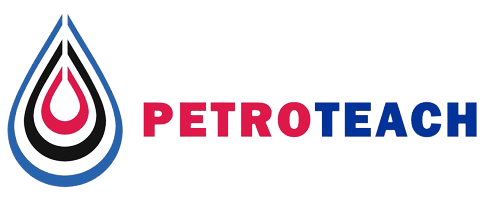
COURSE SCHEDULE
| Code | Date | Location | price (€)* |
|---|---|---|---|
| RES 427 | 2 - 6 Nov 2025 | Abu Dhabi | 3990 |
| RES 427 | 9 – 13 Feb 2025 | Online | 1990 |
| RES 427 | 2 – 6 Mar 2025 | Online | 1990 |
| RES 427 | 20 – 24 May 2025 | Stavanger | 3990 |
* Prices are subject to VAT and local terms. Ph.D. students, groups (≥ 3 persons) and early bird registrants (8 weeks in advance) are entitled to a DISCOUNT!
COURSE OVERVIEW
This 5 day training is designed for upstream oil & gas production, reservoir/production engineers and geoscientists who need to understand PVT phase behavior and tests for different types of fluids (dry gas, wet gas, gas condensate, volatile oil, and black oil), how the experimental data are presented in PVT reports, identifying relevant data and how the results can be used for Equation of State (EoS) tuning and modelling. A familiarity with basic petroleum and reservoir engineering principles is a prerequisite. Topics ranging from reservoir fluid composition, phase behavior and reservoir fluids classification; optimally obtaining high quality PVT fluid samples; effect of contamination; PVT tests and correlations/modelling; density, viscosity and interfacial tension, the evaluation and application of PVT reports; fluid analysis and characterization, Equation of State (EoS) tuning using a commercial model and applications in reservoir simulation. There will be a discussion of potential causes of errors and several case studies. Considerable time will be allocated to reviewing PVT reports and extracting relevant data and using the data in tuning of EoS.
COURSE OUTLINE
5 days
Day 1
o Fundamentals
o Phase behavior of pure compounds and mixtures
o Acentric factor, and Compressibility Factor (Z)
o Phase Envelope; classification of reservoir fluids
o Role of water, factors that affect water production
o Fluid Sampling
o Role of PVT tests and reports
o Well stabilization and optimum production rate for oil and gas condensate reservoirs; multi-phase and/or separator sampling; oil based mud filtrate contamination evaluation and removal.
o Examples
Day 2
o Compositional analysis
o Basic PVT tests for a dry gas
o Tests for a wet gas
o Separator tests
o Determining molecular weight of the liquid hydrocarbon
o PVT tests for an oil
o CCE Test and Bubble Point Measurement
o DL Test and Reservoir Simulation
o Separator tests, Oil Properties, GOR, etc.
o Viscosity and Density Measurements
o PVT tests for a gas condensate
o Compositional, CCE and CVD
o Liquid Drop-Out
o PVT tests for a volatile oil
o CCE, DL and CVD
o PVT Tests for Heavy Oil
Day 3
o PVT Correlations, PVT Reports-Quality Checks
o Phase Equilibria
o Criteria For Equilibrium
o Chemical Potential, Fugacity and Activity
o Equilibrium Ratio
o Raoult’s Law, Henry’s Law, Empirical Correlations
o Equations of State
o Ideal Gas Law
o Cubic Equations of State
o Two-parameter EOS
o Soave-Redlich-Kwong (SRK) EOS
o Peng-Robinson (PR) EOS o Volume Shift
o Three-parameter EOS
o Attraction Term Temperature Dependency
o Mixing Rules
Day 4
o Phase Behavior Calculations
o Vapor-Liquid Equilibrium Calculations
o Fluid Characterization
o Experimental Methods
o Distillation, Gas Chromatography
o Critical Properties
o Lee-Kesler and Riazi-Daubert Correlations
o Description of Fluid Heavy End
o Single Carbon Number Function
o Continuous Description
o Distribution by Gamma Probability Function
o Gas Injection
o Miscibility Concepts
o Ternary Diagram
o Miscibility in Real Reservoir Fluids
o Experimental Studies
o Slim Tube and Rising Bubble Apparatus
o Contact Experiments
o Prediction of Miscibility Conditions
o First Contact Miscibility
o Vaporizing Gas Drive
o Condensing-Vaporizing Gas Drive
Day 5
o Interfacial Tension
o Measurement Methods
o Prediction of Interfacial Tension
o Water-Hydrocarbon Interfacial Tension
o Application in Reservoir Simulation
o Grouping
o Comparison of EOS
o Tuning of EOS
o Methodology
o Case Studies
o EOS Calibration for an Oil Sample
o EOS Calibration for a Gas Condensate Sample
o Creating Black Oil Tables for Reservoir Simulation
INSTRUCTOR

Professor Bahman Tohidi
Professor Bahman Tohidi is expert on gas hydrates, flow assurance, PVT, phase behavior and properties of reservoir fluids and H2S/CO2-rich systems, production technology and EOR. He leads Hydrate, Flow Assurance and Phase Equilibria Research Group at Institute of Petroleum Engineering, Heriot-Watt University. He is the Director of International Centre for Gas Hydrate Research and the Centre for Flow Assurance Research (C-FAR) at Institute of GeoEnergy Engineering, Heriot-Watt
His is a consultant to major oil and service companies. Bahman is Managing Director of “HYDRAFACT LIMITED” a Heriot-Watt spin-out Company formed in late 2005 with Flow Assurance and PVT as its main area of activity. Hydrafact played a major role in Heriot-Watt University winning the Queen’s Anniversary Awards in 2015. Bahman was the recipient of “Life Time Achievement” from the 9th International Conference on Gas Hydrate, Denver, USA, in June 2017 for significant, continuous contributions to the area of hydrate research, practice, and/or exploration, for a period of over twenty five years. Also, his research group work was recognized as one of the top 10 UK examples of the role of Chemical Engineering in Modern World by the IChemE in 2016. He has more than 450 publication, several book chapters and 13 patents.
FAQ
DESIGNED FOR
Reservoir, petroleum, production, process, design, and drilling engineers, geologists / operators / technicians / managers, MSc and PhD students.
COURSE LEVEL
- Intermediate
LEARNING OBJECTIVES
The learning objectives of the top-most level content of the course are grounding in:
o Demonstrate the fundamentals of reservoir fluid composition, phase behavior, correlations and classification.
o Discussed and design fluid sampling for most representative sample, effect of contamination and how to remove it.
o Establish PVT testing requirements and extract the most important data from PVT reports.
o Density, viscosity and interfacial tension measurements
o Fluid characterization, Gas Chromatography (GC), Distillation, Single Carbon Number (SCN), fluid description
o Equation of State (EoS) tuning, parameters required, generating black oil table from EoS
o An introduction to EOR processes, in particular gas injection, first contact miscible, multiple contact miscible (vaporizing/condensing gas drive)
o Prepare the results of PVT analysis for use in reservoir modelling and reservoir engineering studies.
o Characterize sources of error in PVT modelling and evaluate case studies
o Use PVT data in EoS tuning (for a black oil and a gas condensate) and reservoir simulation
o Case studies
REGISTER
Registration is now OPEN!
* Prices are subject to VAT and local terms. Ph.D. students, groups (≥ 3 persons) and early bird registrants (8 weeks in advance) are entitled to a DISCOUNT!
For more details and registration please send email to: register@petro-teach.com
REQUEST IN HOUSE
Would you like a PetroTeach training course delivered at a time or location to suit you?
click for request in house

